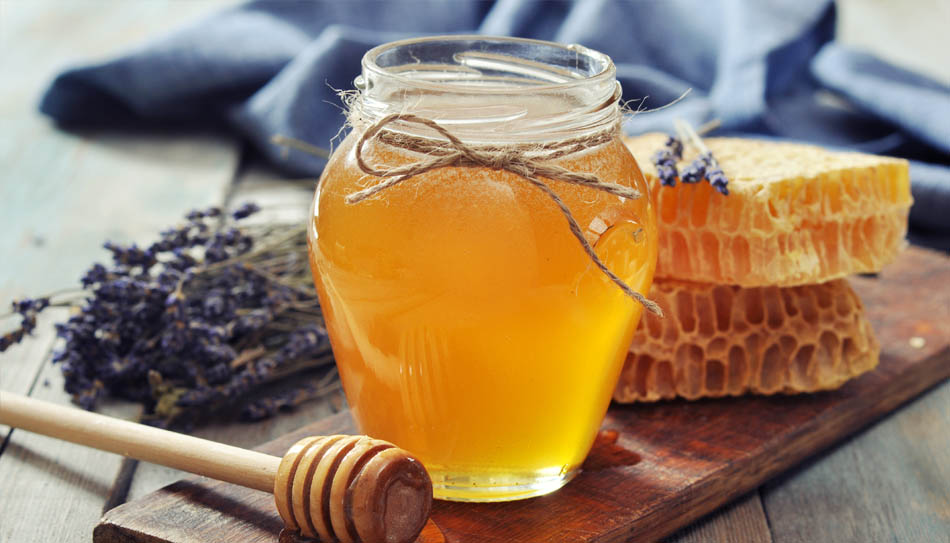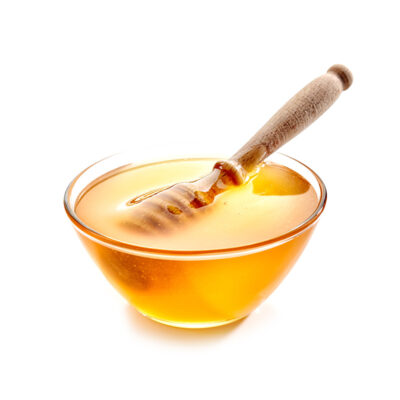Is Honey Good for Diabetes? The Truth About This Natural Sweet Liquid
Honey may be nature’s syrup, but is it safe for people with diabetes? That’s what we’re going to find out in this article.

Some people use honey as a natural sweetener for their hot drinks or baked goods, while others prefer eating honey as a dessert. No matter how you enjoy honey, there’s no denying that it’s one of nature’s tastiest treats. But is it suitable for people with diabetes?
That’s what we’re going to discuss in this comprehensive guide. We’ll look at how honey affects your blood glucose level, as well as whether or not there is any form of honey that is safe for people with diabetes to eat. Read on for all the information.
Is Honey Good for Diabetes?
The short answer: yes. If you have diabetes, you can safely eat honey, though only under certain conditions. However, there is generally no advantage to substituting honey in place of sugar in a diabetes eating plan. Both honey and sugar will affect your blood sugar levels since honey naturally contains large volumes of sugar.
People with diabetes need to manage and control their intake of sugar and carbohydrates to maintain healthy blood glucose levels, but that doesn’t mean they have to forgo sweets altogether.
Raw honey is safe in moderation and offers a range of health benefits, but it is important to treat it the same as any other dessert when you’re living with diabetes – it can be dangerous to your health if you consume too much.
What Is Honey?
Honey is a golden, thick liquid produced by honeybees and various other insects, such as wasps and bumblebees. It is derived from nectar found in flowers, which is collected and stored by bees to be deposited in their hives later.
This nectar consists of water, sucrose (a form of sugar), and other substances. It comprises around 20% water and 80% carbohydrates, and bees use it to produce honey. They do this by ingesting the nectar, then regurgitating it, repeating this process until all the water is removed.
While natural honey consumption can be a good sweetener, honey does have slightly more calories and carbohydrates per teaspoon than standard table sugar.
How Does Honey Affect Blood Sugar?
Honey affects blood sugar because it is a natural sugar and carbohydrate. However, compared to standard table sugar, it does not raise your blood sugar quite as quickly – though it still causes a significant increase.
A study conducted in 2004 tested the effects that both sugar and honey had on blood sugar levels, with the participants including people with and without type 1 diabetes.
The researchers found that, in the participants who had diabetes, honey caused an initial blood sugar increase after 30 minutes. This is substantially slower than the blood sugar increase experienced after eating carbohydrate-rich foods, which increase your blood sugar after just 15 minutes.
However, their blood sugar levels later decreased and remained at safe, low levels for 2 hours. This leads us to believe that, unlike table sugar, honey can increase insulin – one of the most important hormones in managing blood sugar.
Nutritional Value of Honey
As we have already mentioned, raw honey contains a range of healthy nutrients that are beneficial to the body. Here’s a quick breakdown of those nutrients:

As you can see, pure honey contains plenty of energy and water per 100g, and while it might seem to contain a lot of sugar, it is not enough to cause blood sugar levels to spike to dangerous levels in people with diabetes.
In fact, raw natural honey has anti-inflammatory properties that can reduce some of the complications related to diabetes, like edema.
Glycemic Index of Honey
One of the greatest benefits of honey is that it has a medium glycemic index, lower than sugar. The glycemic index is a measurement of how quickly a carbohydrate raises blood sugar levels.
Honey has a glycemic index score of 58, while sugar has a score of 65. Honey causes your blood sugar to increase fairly quickly, as do all carbohydrates. However, this increase is not as rapid as with regular sugar.
So, if you are living with diabetes, you can still eat raw honey (in moderate amounts) without compromising your health.
How to Consume Honey for Diabetes
While it is a natural ingredient, honey is, unfortunately, still classified as an added sugar to our everyday diets. That said, it can still be enjoyed safely by people living with diabetes if eaten in moderate amounts and incorporated into a balanced, healthy diet.
A fiber-rich diet of fruits, vegetables, seeds, nuts, whole grains, and legumes can help manage blood sugar effectively.
It’s important to keep the overall carb intake of your meals as low as possible when you eat honey so as not to cause hyperglycemia. It helps balance any snack or meal that includes honey with various healthy foods low in carbs.
If you want to be better about controlling your blood glucose levels and want to manage your sugar intake, then you can substitute honey in place of sugar. Or, try using substitutes like monk fruit extract, stevia, or yacón syrup.
Plus, if you would like to lower your glucose levels as well as blood pressure, you can mix honey, apple cider vinegar, and water. If that is too bitter for you, you could also mix honey into a glass of lemon water for a refreshing summer drink.
NOTE: If you follow a plant-based diet for managing diabetes, you may want to consider where you stand on consuming honey, as vegans consider honey an animal product as it contains bee saliva.
FAQs
Honey is one of the healthiest natural foods out there. It contains a range of health benefits, including antioxidant, anti-inflammatory, and antibacterial benefits.
No, honey is a medium-GI food.
Honey is not much healthier than regular sugar or even coconut sugar. It is not good for diabetes and should be treated as a dessert that should be consumed in minimal to moderate amounts. There are plenty of diabetes-safe sugar substitutes, but honey is not one of them.
A Word From Our MD
Honey can be safe to eat for people living with diabetes when consumed in moderation since it has a slightly lower glycemic index than white sugar. With that being said, if you are living with diabetes, you should certainly consider chatting to your physician about incorporating honey into your diet.
If you have poorly-managed diabetes, then limiting your intake of honey and added sugars may be the best course of action for your health. Still, I confidently recommend honey as a sugar replacement to my patients with diabetes, provided they’re diligent about watching their blood sugar levels!
Conclusion
Honey is a natural sweetener with a lower glycemic index measurement than table sugar. It can be used as a replacement for sugar, but, as with any sweetener, it is important to consume it in moderation.
We recommend consulting with your doctor before you add honey to your diet – it’s not right for everyone, especially those who have to work on lowering their blood glucose levels.

















































 Select your language:
Select your language: 








